Share
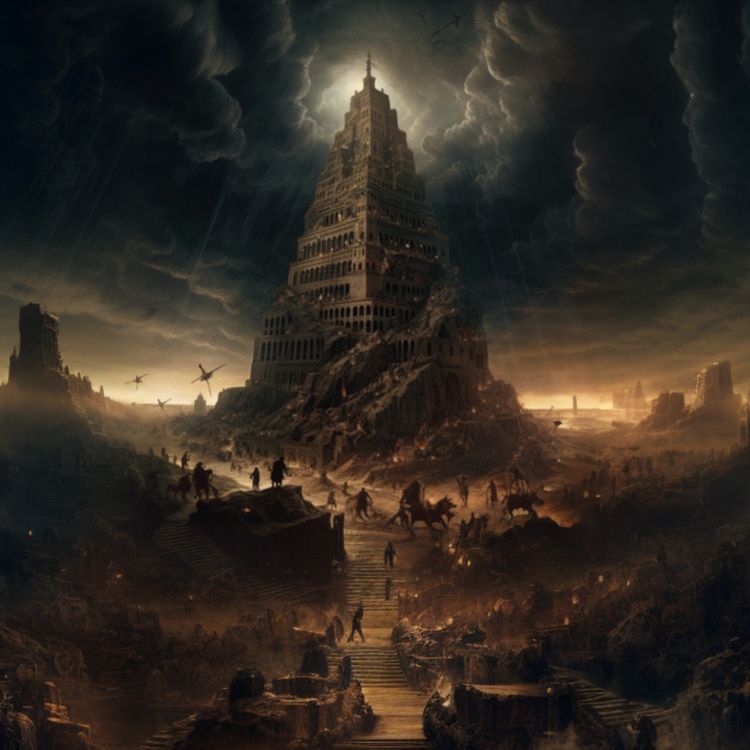
Grimdark History
The Destruction of the Tower of Babel - Part 2
Season 1, Ep. 11
•
In Part 2 of our three part series exploring the history of the city of Babylon and the destruction of the Tower of Babylon we look at the history of Mesopotamia from Sargon the Great to the rise of Assyria. Building background to the eventual destruction of the tower we explore the types of people within and surrounding Mesopotamia, the major cultures involved in our story, as well as the religion and life of the Babylonians.
More episodes
View all episodes
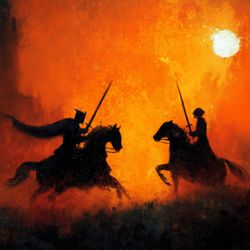
8. The Anarchy
01:22:13||Season 2, Ep. 8Inspired by the TV miniseries and novel, Pillars of Earth by Ken Follet today's episode looks at the real history surround a period of time in English history known as The Anarchy. A 20 year long civil war between the grandchildren of William the Conqueror over the throne of England. Rightful ruler of England, Empress Matilda lands in England with a force of no more than a few hundred initial supporters, and over a period of 20 years will tear the country in two as she wars with her cousin, King Stephen over who is the rightful ruler. The events of todays episode come from William of Malmesbury, an English monk who not only lived through the actual events of The Anarchy, but was present in the very room for some of its key moments.As always if you like to reach me to comment on the show or let me know how your day is going you can reach me at grimdarkhistory@gmail.comThis episode today has also been produced in collaboration with Paul De La Rosa of Double Helix: Blueprint of NationsTwitter: @HistoryHelixBlueSky: @historyhelix.bsky.socialFacebook:https://www.facebook.com/DoublehelixhistoryInstagram: History_HelixEmail: DoubleHelixHistorypodcast@gmail.com
7. Revolutionary Era France - France of the 1780's
01:08:37||Season 2, Ep. 7Covering the series of events the leads to the tinderbox of French life that enables the French Revolution. From the day-to-day life of the hundreds of thousands of peasants and migrant workers, their meagre subsistence living, to the nobility and growing bourgeois middle class and court of Versailles that has slow turned the French government at every level into a plutocracy able to be bought and sold.For the right price, even ascension into the upper echelons of the noble class is available. By the 1780's no less than 2 new noble families per day had managed to buy their way into the increasingly top heavy world of the ultra rich. Yet, even as the old money and new money nobles squabble over what few realms of advancement are left to them, the peasants and lowest of the professional classes struggle just to leave. With up to 1/2 of of a peasants salary spent just on food, and rarely able to afford a family of 2 or even 3 with income that has not increased in 50 years.Can a Plutocratic government survive, or will the lower classes crushed by the greed of the wealthy rise up and effect change? Let's find out what life was like in 1780's France as we get stuck in on the French Revolution.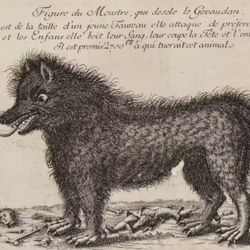
6. Revolutionary Era France - The Beast of Gévaudan
01:24:11||Season 2, Ep. 6From 1764-1767 the Gévaudan region of France was terrorized as a supernatural animal attacked and killed over 100 women and children with dozens more who were attacked but survived. The attacks were especially horrific with several decapitations reported or throats torn out. The rumours swirled of a supernatural wolf or strange hybrid beast stalking the area. Multiple professional hunters organized hundreds and at times thousands of the local population in concerted efforts as they tried and failed to kill The Beast. This podcast covers the Beast of Gévaudan, the hunters involved, the heroic survivors of the attacks and the remarkable story of The Beast as it captured the fascination of all of Europe and especially France, Versailles, and King Louis IV.Books/Research articles used in this episodeMonsters of the Gévaudan, the Making of a Beast by Jay M. Smith, Harvard University Press 2011. ISBN: 978-0-674-04716-7The 1767 French "Rapport Marin" = a Questionable Report about the Examination of an Allegedly Man-eating Wolf (canis lupis) ReasearchGate, pp.1-16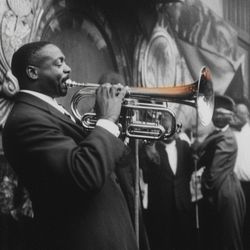
5. Sex, Jazz & Ax Murders - The Ax Murderer of New Orleans
01:01:25||Season 2, Ep. 5From 1910-1919 New Orleans would undergo a period of rapid social change. WWI would break out, Prohibition was just around the corner. The Spanish Flu was ravaging the country. And, the famed Storyville would be shut down causing an exodus of jazz musicians to the famed Second City of jazz, Chicago. Through this turbulent era of increasing mob violence, increasing prohibition era political activities, the Spanish flu, and the Great Migration of black family from the US South to North a serial killer stalked the streets of New Orleans. For 9 years the killer would break into homes in the middle of the night and attack sleeping families with a hatchet.In this episode we explore the infamous Axman of New Orleans at the close of the Storyville era. The murders, the police investigation, and trials and uncover this bloody part of New Orleans past.Sources Used: Empire of Sin, a Story of Sex, Jazz, Murder and the battle for Modern New OrleansAuthor: Gary Krist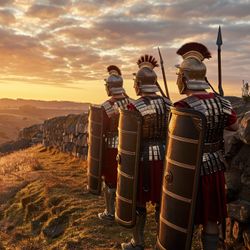
4. Uncovering Roman Carlisle - An Interview With an Archaeological Team
55:35||Season 2, Ep. 4In 208 CE Septimius Severus travelled with his legions, and a massive entourage of as he travelled to Britain to conquer Caledonia. Through the course of his campaign many Roman forts settlements along his path were fortified and, at least temporarily, blessed with the Imperial court as it moved through what is now Carlisle in England.1800 years later flooding in the region revealed a rich legacy of Severus’ time.Frank Geicco, Technical Director of the Uncovering Roman Carlisle archaeological dig and volunteer, Tatiana Becker join me for an interview of some of the fascinating discoveries of Roman life at the northern most border of the Roman Empire. Join me as we discuss Roman life under emperor Septimius Severus and some of the amazing finds uncovered be the team of volunteers.If you would like to help to support the Uncovering Roman Carlisle archaeological dig please visit the below links to help support or learn more about this amazing slice of Roman life being painstakingly worked on by volunteers. Main Website: Uncovering Roman CarlisleFacebook Group: https://www.facebook.com/groups/6139466892735766/To Donate: https://www.uncoveringromancarlisle.co.uk/donateVolunteering (links to Eventbrite, will be updated when new dates are available. Tentatively May 31, 2025 is the next date. Check back often!): https://www.uncoveringromancarlisle.co.uk/get-involvedIf you’d like to see some of the posts of the spring 2025 dig please visit Tatiana Becker’s reddit page to keep track of recent finds: https://www.reddit.com/user/Londunnit/Frank and Anna Geico along with Martin Henig have also authored an amazing book documenting some of the most amazing discoveries from the dig in their book Uncovering Roman Carlisle – Artefacts from a Roman Drain.ISBN: 978-1805170457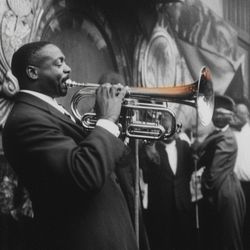
3. Sex, Jazz & Ax Murders - Robert Charles Riots & the Mayor of Storyville
01:18:25||Season 2, Ep. 3In the late 1890’s a well-dressed man from Mississippi on the run from the law moves into New Orleans under the name of Robert Charles. By all accounts he’s a well-groomed and well-spoken man who enjoys a well fitted suit, and bowler hat. One evening he and his friend are approached by police officers. As the officers and Robert get into a scuffle, Robert is shot, but escapes returning to his home and arming himself against the police. As police Captain Day comes knocking on his door later that evening, he is met with a loaded Winchester rifle and a desperate Robert Charles who shoots Captain Day and a patrolman dead in the street. What follows next is four days of rioting and mob rule that will shut down the city of New Orleans and require over 1500 volunteer police officers and the Louisiana State militia to be deployed to the city and restore order. Dozens of black bystanders will be murdered or seriously injured in what will become known as the Robert Charles Riots. Only ending in a deadly and extended shootout with Robert trapped in a New Orleans neighbourhood. Following the riots and the Saratoga Street Standoff with Robert, the crushing segregation laws of Louisiana were enforced with renewed vigor just as the historic Storyville opens its doors, forcing the black and Creole musicians of the era to fuse their distinct sounds together. In 1901 Thomas Anderson rings in the official opening of his Annex (previously the Fair Play Saloon) as a monument to the Gilded Age excess, and celebration of all things vice. By now he’s known as the unofficial Mayor of Storyville as Thomas Andersons Annex is the official stopping point for all things vice inside Storyville. Tom, ever the entrepreneur looks to make money on both sides both by plying his patrons with alcohol and entertainment, and also through his notorious Blue Books which provide a tourist guide to all the bordello houses, bars, juke joints and dance halls within Storyville’s 18 blocks. Madams like Josie Arlington and LuLu White operate the high-end brothels catering to the richest of the rich as everyone competes for the time and money of visitors. One way to keep the visitors in the seat was entertainment in the form of jazz, and its this time when a young 15-year-old Creole pianist by the name of Jelly Roll Morton will begin making his name and taking jazz in a new an innovative direction as he plays the piano in all the high-end clubs. In this episode we explore the Robert Charles Riots, the aftermath on the city, as well as the early years of Storyville and Thomas Anderson to see how the riots, jazz, and Storyville all blend together in one of the most unique eras of New Orleans history.Sources Used: Empire of Sin, a Story of Sex, Jazz, Murder and the battle for Modern New OrleansAuthor: Gary Krist
2. Sex, Jazz, & Ax Murders – The Birth of Jazz & Storyville
01:05:06||Season 2, Ep. 2In the wake of the death of Chief of Police Hennessy the mayor and the city council form a special unit to govern the investigation and arrests of suspects. Venting a racial hatred on the Italian Quarter of New Orleans a 6-month long dragnet descends on the city culminating in over 100 arrests and 20 suspects charged. The trial quickly turns into a circus as both prosecution and defense are accused of presenting mountains of false evidence along with accusations of jury tampering. A Not Guilty verdict quickly turns the city violent as the citizen militia arm of the Young Men’s Democratic Association (YMDA) organize a mob and hand out over 150 rifles to storm a prison and lynch the Italian suspects to correct a failure of justice (as they would see it). The willingness to do whatever it takes to look after the city (or at least look after the white, protestant elites of the city) give the representatives of the YMDA a carte blanche to continue their prolonged process of cleaning up the city. The resulting political capital ensures the next generation of government is run by more of the same and provides opportunity for a newly elected councilman by the name of Sydney Story to propose a radical plan to clean up the city. While no one at the time believed they could eliminate sin, they did believe they could isolate and relegate sinful behavior to out of the way places, and thereby allow all the “respectful citizens” to go about their days and avoid the seedier aspects of vice in New Orleans. Sydney Story’s proposal is approved, and one area of the city is designated a “restricted district” where bars, and bordellos will be allowed to legally operate. A second, unofficial black neighbourhood in the city is also designated for black specific businesses of a seedier persuasion. These two restricted districts will quickly become known as Storyville, and Black Storyville. And, as the two Storyville’s come together two enterprising vice lords see an amazing opportunity to work together and make a lot of money. Hennessy’s best friend, Thomas “Tom” Anderson has made a name for himself in the years since Hennessy’s death as a man of legendary hospitality and also someone with friends on both sides of the law. Using his contacts inside the New Orleans government Tom Anderson is able to purchase prime real estate inside the soon to be Storyville, and he passes this information to his good friend and soon to be business partner Josie Arlington (a madam known for running the best bordello in the city). The two look to capitalize on legalized vice in the soon to be Storyville. Amidst the swirl of Italian lynchings, and restricted districts two other major events are bubbling away inside the city of New Orleans. Young black and mixed-race men in the lower class neighbourhoods are creating a new musical sound that will become known as Jazz. Men like Buddy Bolden, Freddie Keppard, Bunk Johnson, George Bayuet, Pops Foster, and a young Creole pianist known as Jelly Roll Morton become leaders in innovating and creating this still forming musical sound. Sources Used: Empire of Sin, a Story of Sex, Jazz, Murder and the battle for Modern New OrleansAuthor: Gary Krist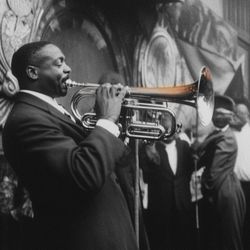
1. Sex, Jazz & Ax Murders - 1900's New Orleans
42:36||Season 2, Ep. 1The history of Storyville, and jazz has its roots in New Orleans, and America’s struggle for virtue and racial division. Post Reconstruction New Orleans is a city of corrupt officials, poorly managed government, and the virtues and ideas of Spanish/French identities clashing with the incoming protestant elites of the Temprance Movement. This episode goes into the era that Vampire Chronicles Louis de Pointe du Lac of the recent AMC TV series Interview with the Vampire takes place in. Louis grew up in the 1880-1890’s Post Reconstruction New Orleans and his formative teen years saw major events reshape the direction of the leadership in New Orleans. From increased racial segregation, temperance laws, and the haphazard reconstruction efforts of the post civil war era saw a New Orleans leadership battling long term corruption, the spread of sinful bordellos, high crime, corrupt cops, and the Italian Mafia. A major shift in the city comes in the late 1800’s as the Young Men’s Democratic Association (YMDA) bands together a political opposition and armed militia to take on the Old-World establishment. What follows is the story of increased segregation laws, temperance laws, assassinations of police chiefs, and a riot and lynching that will rock a generation of Italians and blacks living within the city. The results will create the scenario in which a city government, faced with no good choices and forced to deal with the growing anger of both the Temperance Movement and Old-World elites makes a law that will result in the creation of the famed area of New Orleans known as Storyville from which the birth of jazz traces its roots. Though Thomas C. Anderson will become a name synonymous with crime, sex, and vice during the early 1900’s, during the 1880’s-1890’s he was a close and personal friend of famed teetotaler and chief of police David Hennesy who’s efforts to stamp out corruption and battle the Italian Mafia will result in his brazen assassination and set off the first domino that will lead to the creation of Storyville and the epic location from which Season 1 of AMC’s Interview with the Vampire takes place.Sources Used: Empire of Sin, a Story of Sex, Jazz, Murder and the battle for Modern New OrleansAuthor: Gary Krist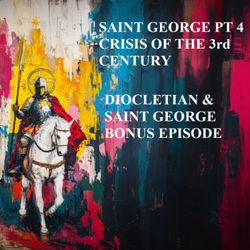
28. Crisis of the 3rd Century - Diocletian & Saint George Bonus Episode
01:14:40||Season 1, Ep. 28With the unexpected death of Aurelian and no designated heirs to the empire Rome suffers a number of emperors in quick succession with several only lasting months to a few short years. Looking like the Roman Empire might fracture yet again except for a shrewd officer named Diocletian who through good fortune and good planning is able to wrest the control of the empire and enforce stability upon it once more. Diocletian establishes what is known as the Tetrarchy, a rule of four emperors (two senior and two juniors), and though there is no clear Eastern or Western Roman Empires, Diocletian and his co-emperor Maximianus set the base upon which Rome will continue to endure for hundreds of years. First they must finally come to terms with the Franks and other Germanic tribes that have been decimating the Rhine frontiers for 30 years, and then jointly deal with yet another revolt in the form of breakaway claimant Carausius and his Britannic North Sea Empire before returning jointly to the east again and dealing with yet more revolts in Egypt. This is the era Saint George lived through. The reformation and reimagining of what the Roman Empire could be. Being fortunate enough to take advantage of the reforms of Gallienus only a couple of decades ago as enabled Christians to seek advancement in Roman society, and have career prospects in the Roman legions as Maximian and Diocletian work to enforce peace across the Roman borders. As 303 comes around, Saint George’s fortunes were to take a turn for the worse. With peace at last across the empire Maximian, Diocletian, and Diocletian’s jr emperor Galerius look to stamp out the Manichean Christian faith in the east, widely believed to be behind the most recent revolt in Egypt, before taking a broader anti-Christian stance to the rest of the empire. Saint George, caught up in the famous Christian persecutions under Diocletian in the east suffers martyrdom possibly at the hands of Galerius while a now old Diocletian looks to retire and leave the empire in the hands of the next generation. This bonus episode of Grimdark History Podcast winds down with a look across Season 1 of the podcast and a preview of Season 2 starting in January 2025. Sources Used in this episodeRoman Empire from Severus to Constantine - Patricia Southern